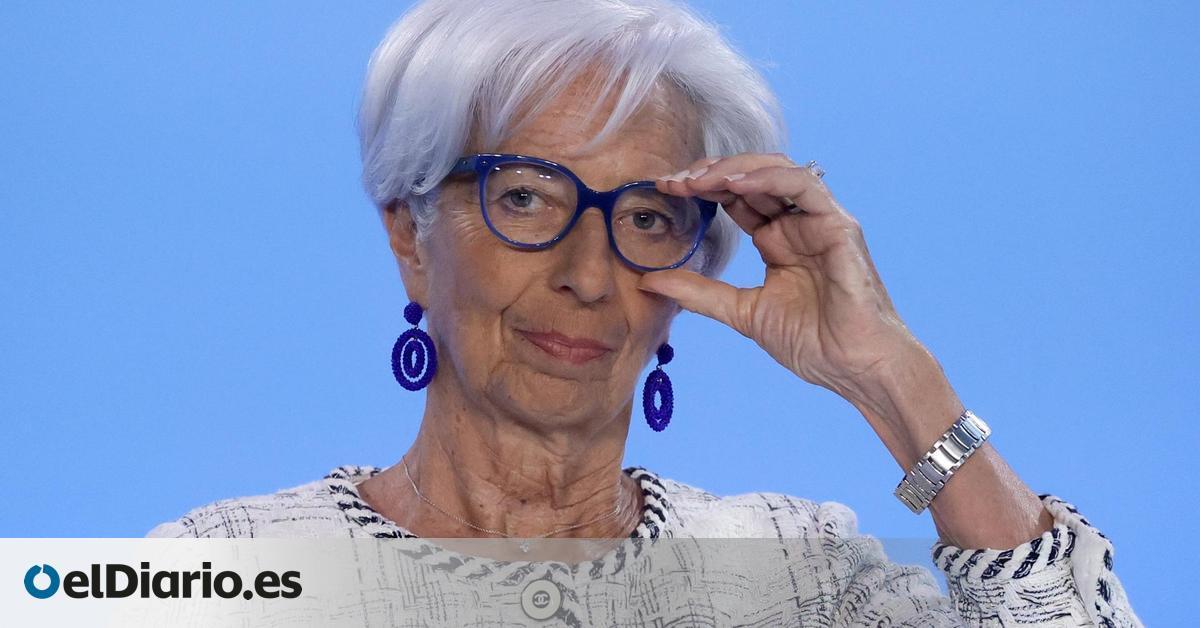
The one-year Euribor closed at 3.86% in May and in its daily calculation it already exceeds 4%, a maximum since the end of 2008. The index with respect to which the loan installments are calculated continues to climb after the last rise of the official interest rates of the European Central Bank (ECB), precisely up to 4%, and the threat of continuing to increase them.
Keys to a suffocating Euribor: how it is calculated and why banks can manipulate it
Further
The Euribor makes variable-rate mortgages more expensive, which are revised in June by about 300 euros each month, about 3,600 euros a year, according to the average assumption collected by the INE for a 25-year loan of 150,000 euros, with a differential of 1 point on this benchmark. And in July it will do so even more.
The cost of new loans or those that are subrogated, whether at a variable, fixed or mixed rate, also rises compared to what banks have offered in recent months. In May 2022, the Euribor had barely gotten off 0%. There were still two months to go before the ECB decided to start raising official interest rates in the euro area to fight inflation.
The banks, the big beneficiaries
The great beneficiary of the increases in rates and the Euribor is the bank. Interest income from entities in our country shot up 43% between January and March, compared to the first quarter of 2022.
The banks already warned in 2022 with the beginning of the interest rate rises by the ECB that the real impact on their accounts would arrive in 2023. And so it is.
Even the president of the institution, Christine Lagarde, has admitted this, who acknowledged a few weeks ago that, “until now, the tightening of financing conditions has not been at the expense of the banks’ business, since the positive impact of interest rates The higher interest margins of the entities outweighed the negative impact of the lower volumes [la caída de los importes y del número de préstamos que se firman]”.
The growing profits of the banks favored the creation by the Government of a special tax in 2022 and even the design of a package of protection measures for vulnerable mortgagees. But the most critical voices warn of its insufficiency if a fair distribution of the consequences of this inflation crisis and the ECB’s response is to be sought. Some even go further and warn of the lack of competition between banks, which would operate in an oligopoly (a handful of entities control most of the business) and of the possible risk of manipulating the Euribor itself.
The Euribor “should be prohibited as a mortgage reference,” Carlos Martín Urriza told elDiario.es, still director of the CCOO’s economic cabinet, from which he recently joined the ranks of Sumar.
The economist proposes as an alternative that the mortgage installments be calculated with respect to the interest rates of the long-term public debt. This option exists in our country for an average interest rate of the debt between 2 and 6 years, according to the Bank of Spain, although it is rarely used.
In addition, the expert who has signed Yolanda Díaz is committed to “favoring the portability of mortgages.” In other words, for the creation of “a portability system, similar to the one that exists in telephony, with offers according to risk profiles published in the CNMC, so that entities cannot reject any client”, which is currently being inflation crisis one of the big problems of the lack of competition, which is observed in that the remuneration or profitability of deposits is not accompanying the increase of the Euribor.
More rate hikes
After the aggressiveness shown this Thursday by the ECB, the IMF (International Monetary Fund) has come out this Friday to ask for more increases in the official ‘price’ of money in the euro area and has recommended keeping it high for “an extended period”.+
The body sees “persistently high inflation” and advises the institution chaired by Christine Lagarde that monetary policy continue to tighten, “maintaining a restrictive bias.” That is, damaging the economy as the only way to combat price increases.
Less consumption, less investment, less spending… less inflation. These are the objectives of the ECB and the rest of the central banks with the tightening of monetary policy. Because, as they defend, price rises for months and months are more damaging than a recession (a drop in activity), even if it ultimately leads to job destruction.
The only way to fight inflation?
Central banks insist that there is no other tool to moderate inflation than interest rate hikes. But his strategy collides with different realities of this inflation crisis. On the one hand, there is the need to protect the most vulnerable and wages in general from the loss of purchasing power. On the other hand, the success of measures such as the cap on gas in stopping the escalation of the price of electricity has not been taken into account.
And finally, this monetary policy has the ultimate risk of causing a deep recession and does not take into account either the geopolitical origin of the energy shock or the relationship of its second phase, the current one, with company profits (inflation by greed or expansion of profit margins, by shifting all or most of the increased costs to the consumer).
Source: www.eldiario.es

